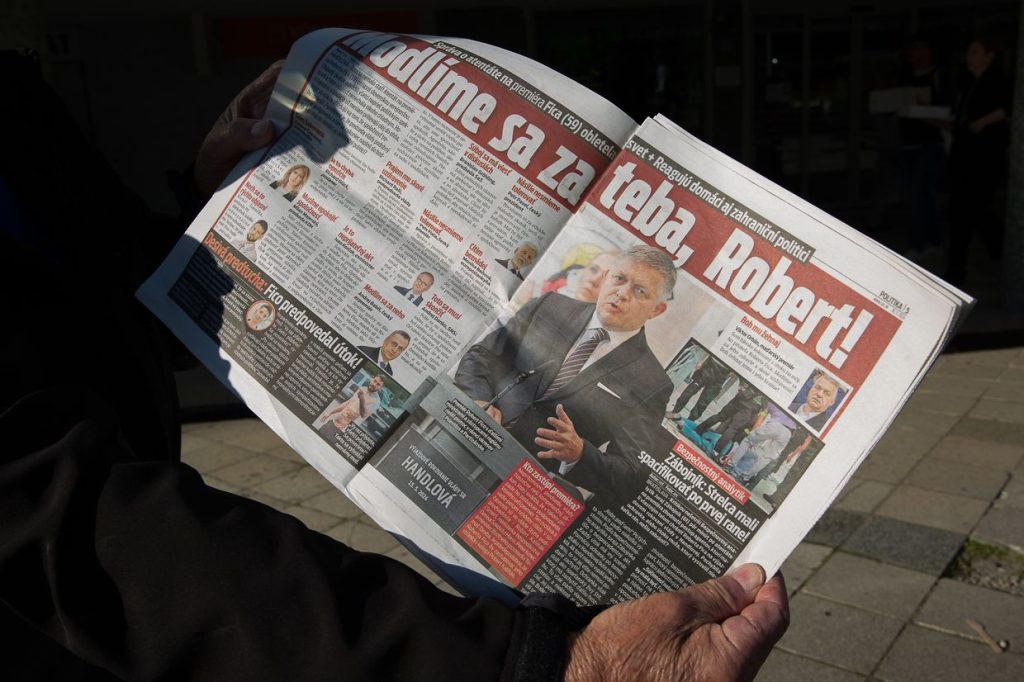In Slovakia, Slovak Prime Minister Robert Fico was gravely injured in an assassination attempt, raising tensions in the country. Some of Fico’s allies blamed political rivals and the media for the attack, without providing evidence. The motive of the suspect remains unclear, but there are concerns that pro-government actors may use the incident to push illiberal policies, such as cracking down on the media. There have been attempts to link the attack to Ukraine, but experts say that the Ukrainian link has not gained much traction in Slovakia.
The assassination attempt took place in a highly polarized socio-political climate in Slovakia, exacerbated by internal and external crises. The country has been experiencing tension and division, with political polarization increasing over the past decade. The assassination attempt on Fico has added to the existing societal split, with fears and anxieties related to the economy and Russia’s war in Ukraine also playing a role in the current situation. Fico’s return to power capitalized on these fears and anxieties, leading to his victory in the 2023 elections.
The new government under Fico has taken controversial steps, including lowering penalties for corruption and abolishing the specialized prosecutor’s office investigating high-profile cases. There is also a bill in progress labeling foreign-backed NGOs and seeking to reform the public broadcaster, seen as attempts to tighten control over media and civil society. These actions have sparked mass demonstrations in Slovakia, organized by the opposition parties, highlighting the growing division in society.
In response to the assassination attempt, outgoing President Zuzana Caputova and president-elect Peter Pellegrini condemned the attack as an assault on democracy. They suggested holding an all-party meeting to address the situation, but some politicians have been reluctant to engage in dialogue after the tragedy. The Slovak parliament adopted a declaration calling for an end to divisive rhetoric and working towards social stability and peace, but there are concerns about the government’s interpretation of “hateful” rhetoric and potentially stifling criticism.
The Slovak society is facing a critical juncture, balancing the need to prevent further violence and foster social reconciliation while also ensuring that dissent and criticism are not silenced. The assassination attempt has underscored the deep divisions within Slovak society, with tensions running high and political polarization escalating. The outcome of this incident will likely have far-reaching implications for Slovakia’s political landscape and the future of democracy in the country.


